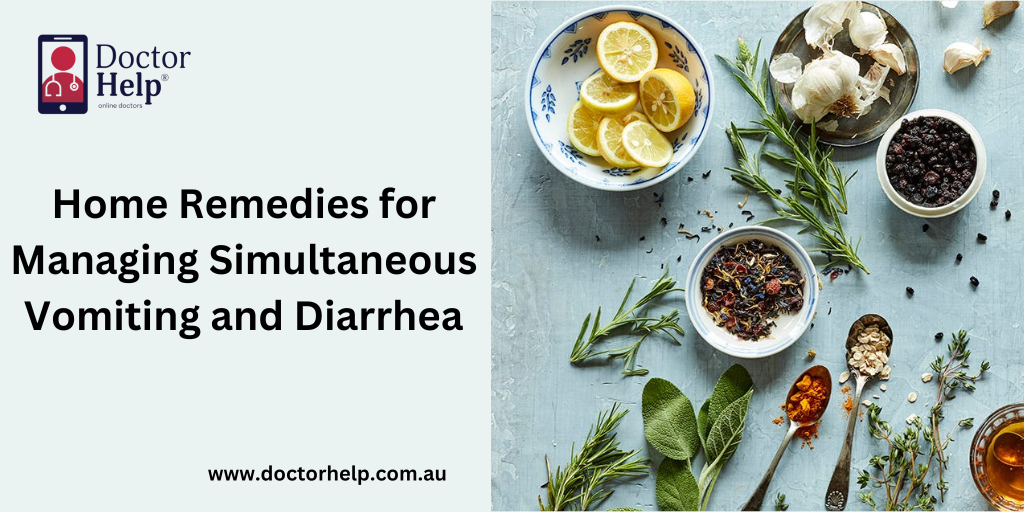“Unless people die from it, a little diarrhea isn’t going to stop us from having our live fish” Alvin Leung
Table of Contents
What is Vomiting and diarrhea?
Diarrhea (watery bowel motions) and vomiting (throwing up) are frequent signs of gastroenteritis. Inflammation and irritation of the stomach and intestines is known as gastroenteritis. Diarrhea and vomiting can be extremely distressed. An irritant causes the bowel and stomach to respond. This could be due to a virus, bacterium, food, or medication.
Key Signs and Symptoms
Dehydration is the primary symptom of both diarrhea and vomiting. When too much fluid is lost, it becomes dehydrated. Although dehydration can occur at any age, it can also occur more quickly in young children and the elderly. Other symptoms includes:
- Abdominal pain.
- Chest pain.
- Loose motions.
- Nausea.
- Headache.
- Stomach pains.
What causes Vomiting and diarrhea?
- Severe diarrhea is most often caused by intestinal illness. Vomiting was the first sign. You will have loose, watery stools for 12–24 hours.
- After consuming unhealthy foods, people frequently experience diarrhea and vomiting. Caused by toxins generated by bacteria that grow on food and have been left out for a long time.
- Consuming food or beverages containing dangerous bacteria can cause illness. If it appears soon after returning from a foreign trip, it is most likely to be related.
- Diarrhea can also be caused by some germs. Bacterial diarrhea normally goes away on its own. However, some conditions such as Shigella colitis can cause serious intestinal illnesses.
What Are Some of the Top Home Remedies for Vomiting and Diarrhea
If you have diarrhea and vomiting simultaneously, you can rely on the following home remedies:
Ginger: A contaminated food might produce diarrhea, in which ginger is said to heal. Abdominal cramps, nausea, and vomiting were also avoided. Additionally, it promotes a healthy digestive system and relieves flatulence. Ginger can be consumed by chewing a tiny piece of freshly peeled ginger root, boiling it to produce ginger tea, or eating chewy ginger supplements or candies.
Peppermint: This herb has been used to treat indigestion, upset stomachs after meals, and other digestive issues. It is frequently used to treat headaches, nausea, diarrhea, and vomiting because of its numerous soothing properties. You might take Peppermint tea may be used to relieve post-meal stomachache.
Chamomile Tea: This tea, when combined with ginger and peppermint, is a wonderful way to calm a rumbling stomach. Chamomile has anti-inflammatory properties. It calms intestinal spasms and enhances digestion. To make chamomile tea easier to drink, small amounts of honey and lemon juice can be added.
Apple Cider Vinegar (ACV): The antibacterial properties of ACV can aid in the fight against infections that cause diarrhea. It also promotes the growth of beneficial intestinal bacteria and aids in restoring the pH balance of the stomach. Glass of warm water can be used to dilute one tablespoon of apple cider vinegar. Undiluted apple cider vinegar can cause tooth enamel damage and throat irritation, thereby avoiding its consumption.
Basil: Some of the components in basil can help lower the gas. In addition, it contains significant quantities of linoleic acid, which has anti-inflammatory properties. Owing to their antispasmodic and antibacterial qualities, basil leaves can help calm the stomach and lessen the symptoms of diarrhea.
Lavender: The lavender also helps reduce nausea and vomiting. It also regulates lipid breakdown by the body. Lavender oils can be soaked in water or inhaled.
BRAT (Banana, Rice, Applesauce, and Toast): A BRAT diet, which consists of banana, rice, applesauce, and toast, will help if there are loose movements, diarrhea, and vomiting. These foods are particularly beneficial if bathrooms are frequently used because they are high in starch and low in fiber.
Lots of Water: If you have diarrhea or symptoms of a stomach infection, you lose even more water throughout the day. Refueling with abundant water is crucial to avoid dehydration. The elderly and young children may be more severely affected by dehydration. To stay hydrated, drink water, or chew on ice throughout the day.
Regular Diet: Try these tips:
- Gradually resume regular diet as nausea subsided and your appetite returned.
- Find out from your doctor whether there are any foods you should avoid.
Can vomiting and diarrhea be prevented or avoided?
Vomiting and diarrhea can be avoided by avoiding raw or undercooked foods. However, it may not always be preventable, because it can be caused by a variety of factors.
When to call your healthcare
Seek medical attention if:
- Vomiting with a severe headache or stiff neck.
- Blood in the vomit.
- Vomiting lasting more than 24 hours.
- Severe diarrhea lasting more than 2 days.
- Vomiting and diarrhea occurring together for more than 1 hour.
Let’s Get Instant Vomiting and Diarrhea Treatment
You can reach DoctorHelp’s doctors via phone at any time. By phone, they can prescribe any anti-diarrhea medication that is required.
The Benefits of Getting Treatment with DoctorHelp
- Show concerns when you need it.
- Take medication for vomiting and diarrhea, and continue your day.
- Time-saving, dependable, and efficient treatment.
Conclusion
Although there are numerous possible causes of vomiting and diarrhea, viruses, food poisoning, and drugs are frequently implicated. A person may have food intolerance or allergy if symptoms are frequent and occur after meals. They can also try to find some alleviation by using home treatment. However, some causes of diarrhea and vomiting are more dangerous. People should contact a doctor if they experience chronic vomiting or diarrhea, significant discomfort, or signs of dehydration.








